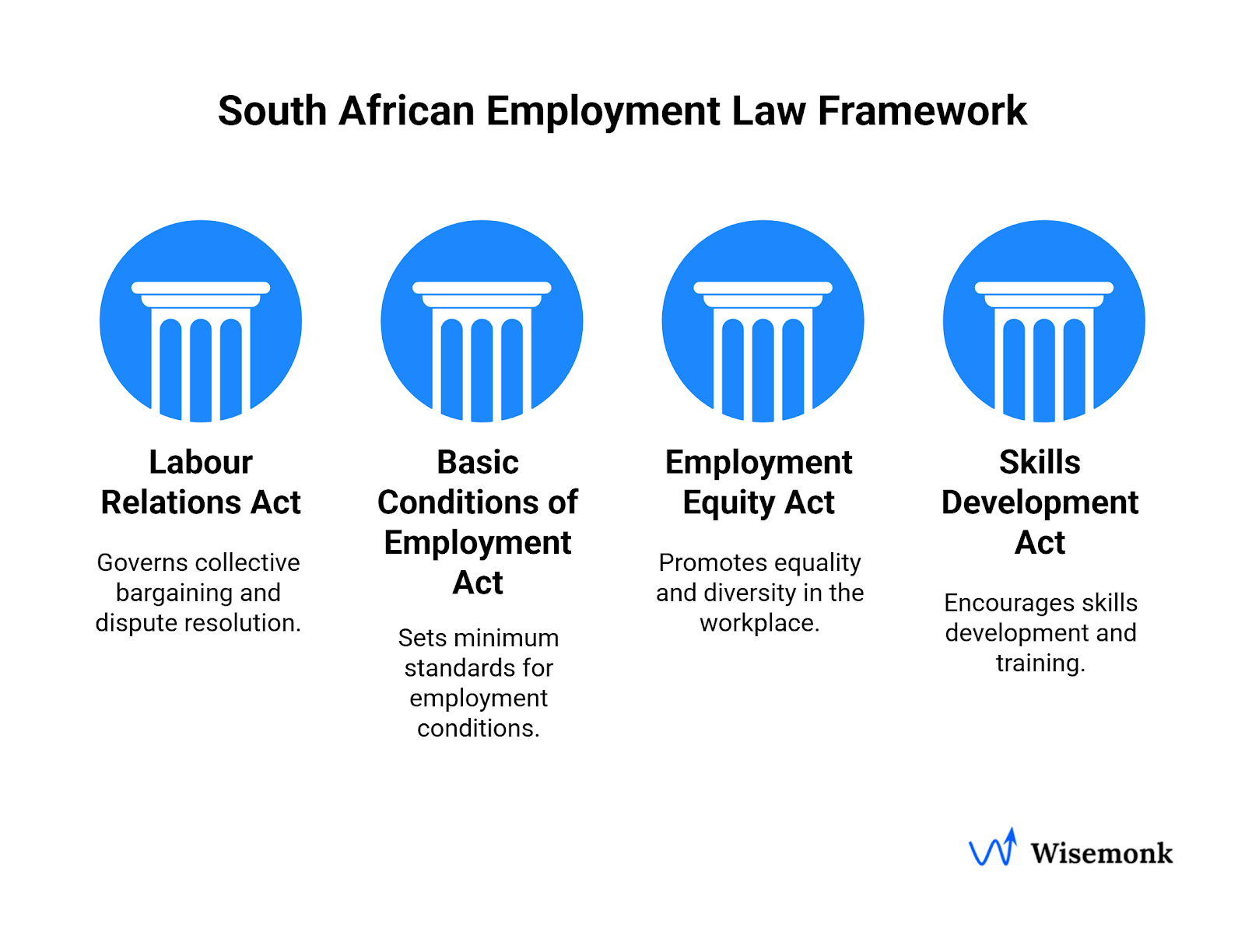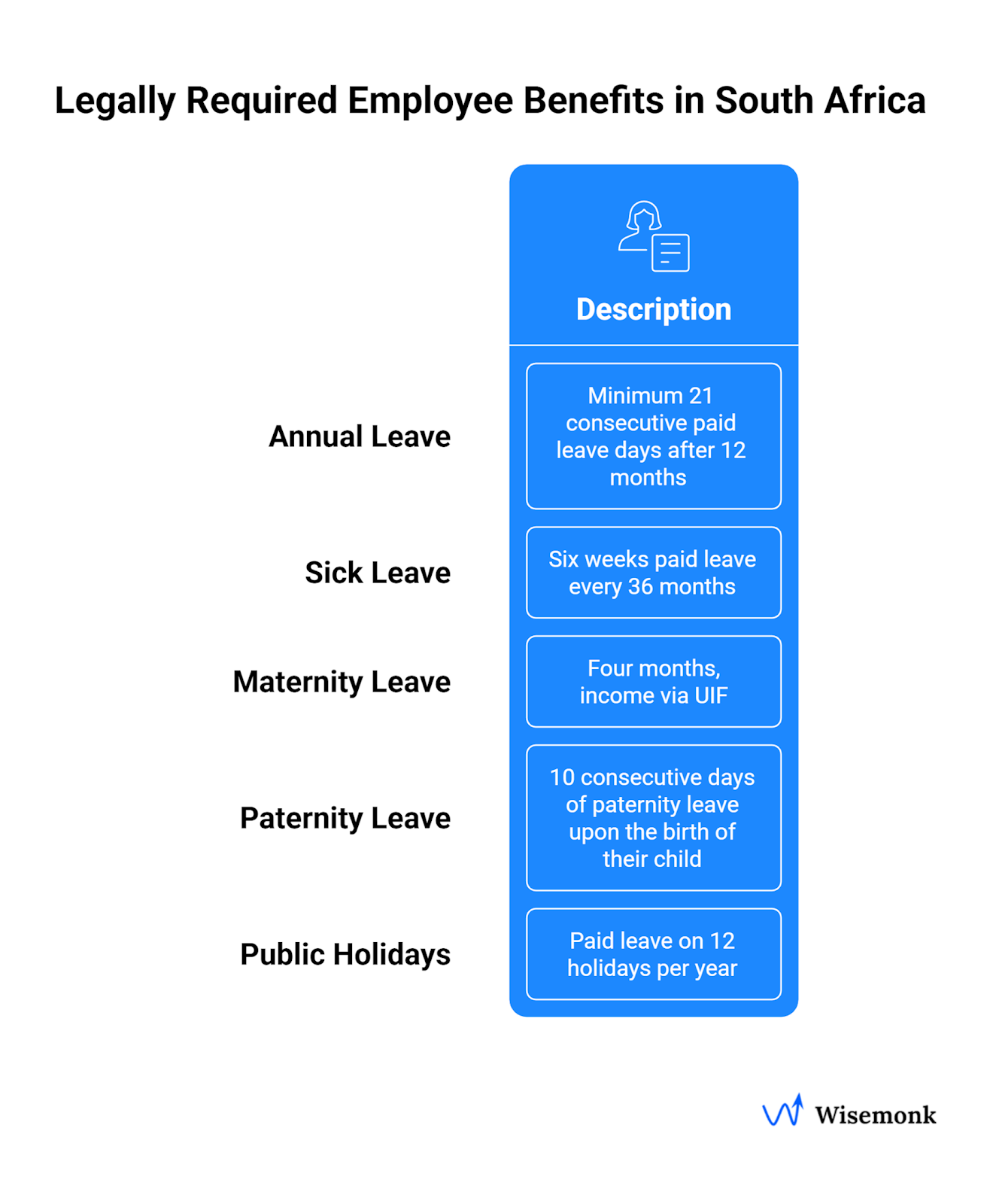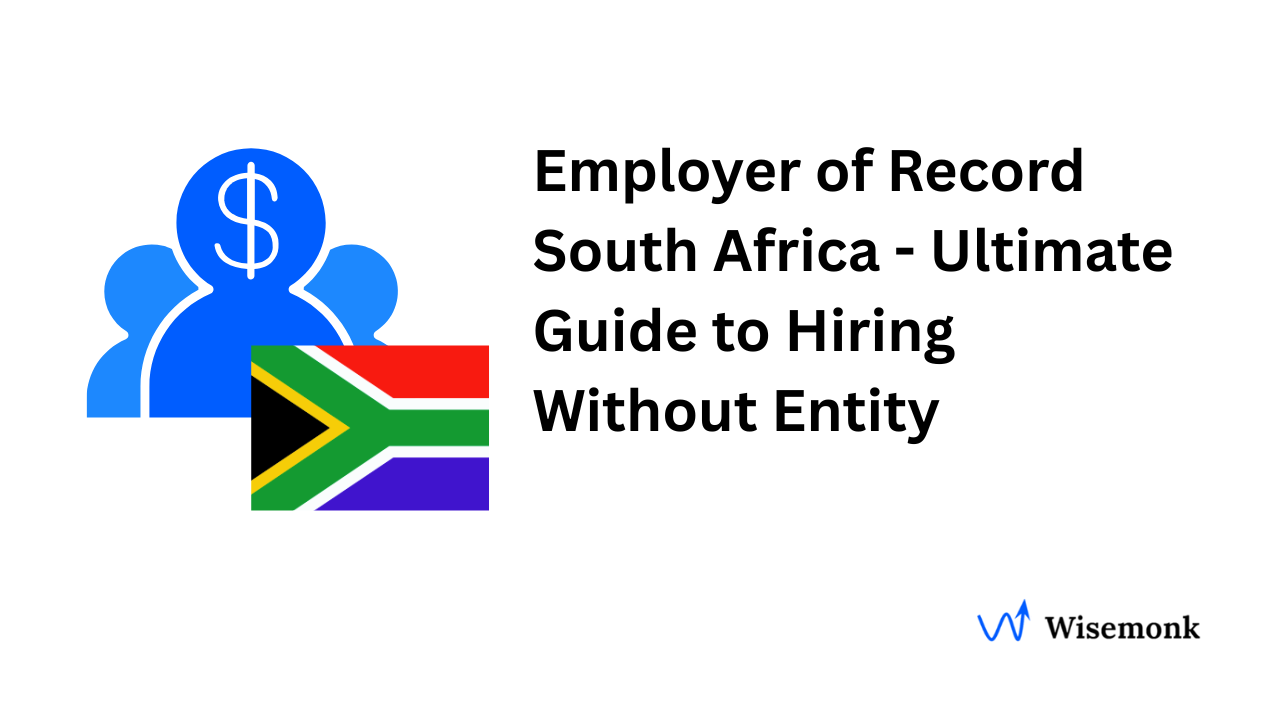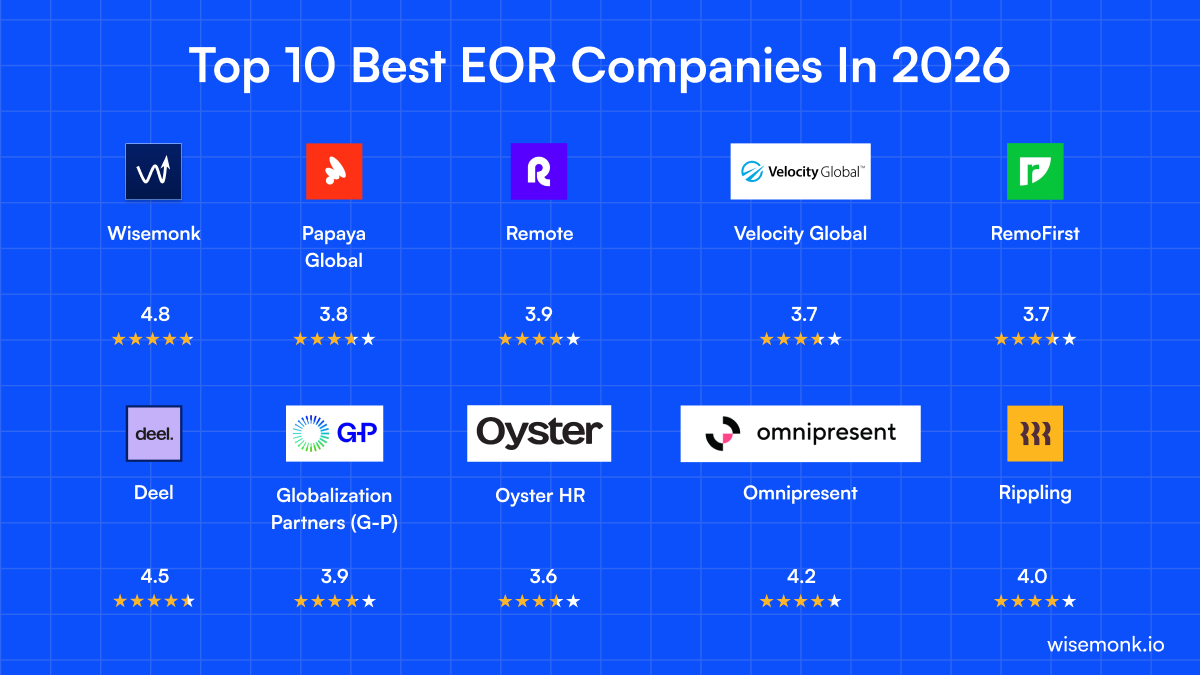Thinking about expanding into South Africa? The country offers unique economic opportunities, with a dynamic market, diverse talent pool, and thriving sectors like IT, finance, and tourism. But South African employment laws are complex and highly regulated, making local hiring tricky for foreign companies. An Employer of Record (EOR) South Africa lets you hire employees compliantly, manage payroll, and handle all legal requirements, without setting up a local entity or tackling the complexities of South African labor regulations on your own.
What Are the Core South African Employment Laws You Need to Know?[toc=Employment Law Framework]
South Africa’s employment laws are designed to protect employees and ensure fair, equitable workplaces. Here’s a quick overview in plain language:

- Labour Relations Act (LRA): This law sets out how employment relationships work in South Africa. It covers rules for joining trade unions, collective bargaining, fair dismissals, and ways to resolve disputes at work.
- Basic Conditions of Employment Act (BCEA): The BCEA spells out the minimum standards for work, including maximum working hours, minimum wage, leave entitlements, rest breaks, notice periods, and what must be in every employment contract.
- Employment Equity Act (EEA): The EEA makes it illegal to discriminate in the workplace and requires businesses to take steps, like affirmative action, to promote equality for previously disadvantaged groups.
- Skills Development Act (SDA): This act encourages businesses to invest in staff training and development, and makes payment of a Skills Development Levy (SDL) compulsory to help fund national skills growth.
By understanding and complying with these core laws, you can confidently manage your workforce and ensure your business meets all South African legal requirements.
What Are the Key Benefits of Using EOR Services in South Africa?[toc=Key Benefits of EOR]
Many companies choose EOR services in South Africa because of the clear advantages they offer:
- No Need for a Local Entity: You can hire South African talent and manage employees without the time, cost, or legal complexity of setting up your own company in South Africa.
- Full Compliance with Labor Laws: EOR providers ensure every employment agreement, payroll process, and benefits package follows South African labor laws, including the Labour Relations Act and Basic Conditions of Employment Act, so you avoid compliance risks.
- Access to Diverse Talent Pool: South Africa’s multicultural, highly educated workforce becomes available to you, helping you find the right people for any role, from full time employees to independent contractors.
- Regional Expansion Platform: South Africa offers a strategic base for scaling your business across the continent, with EOR services enabling smooth cross-border hiring and management.
By choosing EOR services South Africa, you simplify hiring, stay fully compliant, and unlock new opportunities with a skilled, diverse workforce.
How Does Payroll and Tax Compliance Work in South Africa?[toc=Payroll & Tax Compliance]
Payroll and tax compliance in South Africa involves careful management of several mandatory contributions and accurate, timely reporting:
- PAYE (Pay-As-You-Earn): Employers must withhold income tax from employee salaries based on SARS tax tables and remit these amounts monthly to the South African Revenue Service.
- Unemployment Insurance Fund (UIF): Both employer and employee contribute 1% of the employee’s gross salary to the UIF, providing short-term benefits in cases of unemployment, maternity, or illness.
- Skills Development Levy (SDL): Employers with a payroll above a certain threshold pay 1% of their total salaries toward this levy to fund national skills training programs.
- Monthly and Annual Filings: Employers must submit monthly payroll taxes and contributions statements to SARS, along with annual reconciliations detailing total wages, taxes withheld, and contributions.
This structure ensures lawful payment of employee benefits and social insurance while keeping your business compliant with South African tax and labor regulations.
What Employee Benefits and Entitlements Are Legally Required in South Africa?[toc=Employee Benefits & Entitlements]
South African labor laws guarantee several key employee benefits to protect workers and promote fair treatment:

- Annual Leave: Employees are entitled to a minimum of 21 consecutive paid leave days after completing 12 months of continuous employment.
- Sick Leave: Workers receive paid sick leave equal to their normal working days during a 36-month cycle, typically six weeks annually.
- Maternity and Paternity Leave: Maternity leave lasts four months, with income replacement through UIF benefits; 10 consecutive days of paternity leave upon the birth of their child.
- Public Holidays: Employees must be given paid leave on all 12 recognized public holidays per year.
Providing these benefits is mandatory, ensuring compliance with South African labor laws and fostering employee satisfaction and retention.
How Does the Hiring and Onboarding Process Work in South Africa?[toc=Hiring & Onboarding Process]
Bringing new employees on board in South Africa involves several important steps to ensure full legal compliance and a smooth experience:
- Required Documentation: Employees must provide a valid ID or passport, tax number, bank details, and, for foreign nationals, a valid work permit.
- Background Verification: Employers typically conduct reference and qualification checks to validate candidates before finalizing an offer.
- Contract Requirements: Every employee must have a written employment contract outlining roles, salary, benefits, working hours, leave entitlements, and notice periods, in line with the Basic Conditions of Employment Act.
- Integration Timeline: The onboarding process, including registration with the Unemployment Insurance Fund (UIF) and SARS, usually takes 1 to 3 weeks, depending on the complexity and the need for work permits for international hires.
This thorough process ensures new hires are compliant with local laws and ready to contribute effectively to your South African team.
How Can You Effectively Manage the South African Workforce?[toc=Workforce Management]
Managing employees in South Africa requires balancing legal compliance with cultural understanding. Here are key points to navigate workforce management smoothly:
- Cultural Diversity Considerations: South Africa’s workforce is highly diverse with multiple languages and cultures; respecting this diversity fosters inclusion and engagement.
- Communication Preferences: Clear, respectful, and direct communication works best, with sensitivity to different cultural norms and languages.
- Performance Management: Regular feedback, fair evaluations, and setting clear expectations help motivate employees and support continuous improvement.
- Skills Development Requirements: Compliance with the Skills Development Act means encouraging ongoing training and learning opportunities for your team.
By blending local legal requirements and cultural awareness, you create a productive, motivated workforce that supports your business success in South Africa.
How Do Employment Equity and Transformation Shape Workforce Management in South Africa?[toc=Employment Equity & Transformation]
In South Africa, employment equity and transformation go beyond legal obligations, they are essential for creating a fair and inclusive workplace. Key points include:
- Preventing Discrimination: Companies must actively work to eliminate unfair treatment of employees based on race, gender, disability, or other protected characteristics.
- Creating Opportunities: Set measurable goals to hire, train, and promote historically marginalized groups, ensuring workforce diversity reflects the country’s population.
- Skills Development Levy: Employers contribute to this levy, funding national training programs that help employees improve their skills.
- Mandatory Reporting: Larger companies must regularly report on their progress in employment equity and skills development to government authorities.
Embracing these practices not only ensures compliance but also builds a stronger, more inclusive team that drives business success in South Africa.
What Are the Termination Procedures in South Africa?[toc=Termination Procedures]
Now that we’ve seen how to hire, manage, and empower your team, let’s dive into how to handle parting ways, fairly and within the law.
- Fair Dismissal: Every termination must have a valid reason, such as misconduct, poor performance, or operational needs. You’ll need to follow a clear, fair process, think warnings, hearings, and a genuine chance for the employee to respond.
- Retrenchment: When it’s about downsizing or company restructuring, employers must consult with employees and their representatives, explore possible alternatives, and ensure fair, transparent selection criteria. Severance pay is a legal requirement here.
- Notice Periods: The notice you give depends on how long the employee has worked with you. Typically, it’s between one and four weeks, but contracts or union agreements might set longer periods.
- Severance Pay: If an employee is retrenched (let go for operational reasons), they’re generally owed at least one week’s pay for each year of completed service.
Taking these steps means you’ll stay on the right side of South African labor law and maintain good relationships, even when tough decisions have to be made.
How Do You Calculate Costs and ROI with EOR in South Africa?[toc=Cost Analysis & ROI]
Figuring out the numbers is key when hiring in a new market. Here’s what matters most:
- EOR Service Fees: Pay a set monthly fee per employee that covers payroll, compliance, and admin, making your budget clear and predictable.
- Avoiding Hidden Costs: You skip upfront expenses like setting up a local entity and avoid surprise legal or compliance fees.
- Budgeting for Benefits: Annual leave, sick leave, public holidays, and social security are all included, so you can plan costs easily.
- Measuring ROI: Track your spend, hiring speed, compliance rates, and retention to see the real business value of using EOR.
With this approach, you keep spending in check and know exactly what you’re getting. Quick, compliant, and flexible hiring in South Africa.
What Are Common Challenges When Hiring in South Africa?[toc=Challenges]
Hiring in South Africa brings huge opportunities but also some unique challenges. Here are the main ones and how to tackle them:
- Complex Labor Laws: South Africa has strict employment regulations requiring precise compliance. Partnering with local experts or an EOR helps you navigate these rules without risk.
- Employment Equity Compliance: Meeting affirmative action and reporting obligations can be complicated. Expert guidance ensures you stay on track and avoid penalties.
- Cultural Diversity: With 11 official languages and many cultural groups, effective communication and cultural sensitivity are essential for team cohesion.
- Skills Development Requirements: Legal mandates for employee training and development mean you need processes to deliver on these while managing costs efficiently.
Facing these challenges with local knowledge and expert support smooths your hiring and management process and sets your South African operations up for success.
Conclusion[toc=Conclusion]
Using an employer of record South Africa simplifies hiring by handling compliance, payroll, and employee benefits without requiring you to set up a local entity. This lowers costs, reduces legal risks, and speeds up your market entry. Companies looking to expand should clearly define their workforce needs, research reputable EOR providers with strong South African expertise, and evaluate pricing and technology platforms for the best fit.
Here are a few action items for implementation:
- Define the size and roles of your South African workforce.
- Compare proposals from multiple EOR providers focusing on compliance and services.
- Plan onboarding and payroll integration with your selected partner.
- Stay updated on South African labor laws to ensure ongoing compliance.
Following these steps will help you enter the South African market quickly, efficiently, and confidently.
Ready to expand your global workforce quickly and compliantly? Partner with Wisemonk’s Employer of Record services to effortlessly manage hiring, payroll, and compliance, so you can focus on growing your business with confidence.
Frequently asked questions
What are the employment equity requirements?
Employers must prevent discrimination, implement affirmative action plans, set targets for representation, and submit annual reports as required by the Employment Equity Act.
How does the retrenchment process work?
Employers must provide notice, consult with affected employees, explore alternatives to retrenchment, and provide severance pay, usually calculated as one week’s salary per year of service.
What are the skills development levy obligations?
Employers with a payroll above R500,000 annually must pay 1% of their monthly payroll as the Skills Development Levy, which funds national training programs, and must report these payments to SARS.
How long does it take to get a work permit?
Work permit processing typically takes 30 to 40 days when submitted within South Africa and about a month when applied for abroad, though delays can occur if documentation is incomplete.
What are the dismissal procedures in South Africa?
Dismissals must be based on valid reasons and follow a fair process including warnings or hearings, with adherence to statutory or contractual notice periods to avoid legal consequences (Dismissals and Termination of Employment South Africa).
What does EOR stand for?
EOR most commonly stands for Employer of Record, a third-party company that handles employment-related tasks like payroll, taxes, and compliance for another business.
Why do we need an EOR?
An EOR acts as the legal employer for your workforce, managing payroll, benefits, compliance, and other employment responsibilities while you handle day-to-day work.

.png)
%20(1).webp)
